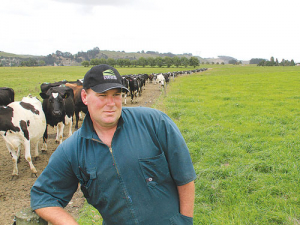We have a Prime Minister describing climate change as “my generation’s nuclear free moment”; and a Climate Change Minister who not only happens to co-lead the Greens but who sees climate change “as a once-in-a-generation opportunity to reinvent parts of our economy and society for the better”.
And this new Labour-Greens-NZ First Government is forthright in its green-leaning tendencies and policies.
Last month, in a historic move, it announced that no new exploration permits for offshore oil and gas fields will be issued, in support of its commitment to action on climate change.
We don’t think the oil and gas industry expected such a strong move against them; and dairy could similarly be blind-sided by the Government.
Federated Farmers leader Andrew Hoggard, a dairy farmer in Manawatu, says this sudden move on oil and gas has farmers spooked. They fear that such sudden changes could be imposed on them.
Will the Government demand the dairy industry reduces cow numbers? Will more costs be imposed on dairying?
According to Federated Farmers, the cost to farmers of bringing agriculture into the Emissions Trading Scheme (ETS) will be up to $83 million in the first year, eventually rising to at least $830m per year.
So although NZ farmers enjoy the reputation of being amongst the world’s most efficient food producers, forcing the sector into the ETS will impose costs that cut our competitive advantage, because no other country penalises agricultural food production through an ETS.
Tackling dairy’s greenhouse gas emissions has long been a priority for the sector.
The latest inventory of NZ’s greenhouse gas emissions shows that gross emissions for 2016 totalled 78.7 million tonnes of carbon dioxide – 19.6% more than in 1990 but 2.4% less than in 2015.
Dairying produces nearly half of NZ’s agricultural emissions and nearly a quarter of total emissions; the industry is well aware of the challenge these figures pose.
DairyNZ says that’s why farmers are bent on every possible mitigation option.
Hoggard hopes common sense will prevail. But that’s what the gas and oil industry leaders had hoped for; look what happened to them.









